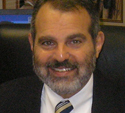Dispatch from Ft. Lauderdale: A shared interest
07.14.08

By Milton Hirsch, Criminal Defense Attorney
In addition to being the answer to a lot of history-of-law questions that begin, “Who was the first … ?”, Thurgood Marshall is the answer to the question, “Who was the last Supreme Court justice who ever tried cases to juries?” In his days as head of the NAACP Defense Fund, Marshall traveled the south, defending indigent and usually innocent black men in small-town courtrooms where the verdict was, more often then not, a mere formality.
It is, therefore, entirely appropriate that the
National Black Prosecutors Association
“NBPA”) has named its most prestigious award after the late Justice Marshall. It is equally appropriate that this afternoon the NBPA presented the Thurgood Marshall award to the Innocence Project. I accepted the award on the Innocence Project’s behalf (my principal qualification to do so being that I was free for lunch).
I've worked closely with the Innocence Project on several cases, including the group's first three cases in Florida: one in Tampa; one in a very small town in central Florida (I believe the town was named either “Reduce Speed” or “Road Narrows,” but perhaps I misremember); and one in Brevard County, which lies on the Atlantic Coast a couple of hours north of Palm Beach. The prosecutor whom I telephoned in Tampa was a model of professional integrity. She told me without hesitation that if we had a good-faith basis to believe that an innocent man was in prison and that a then-novel scientific test would resolve the matter, she would stipulate to the testing at once. The prosecutor in Reduce Speed (or whatever) was less eloquent and more suspicious but, ultimately, not less ethical. He, too, agreed to DNA testing. The prosecutor in Brevard County fought DNA testing for three years. When we finally got the test results and they exonerated our client, the Brevard prosecutor spent three more years arguing that – yes, he actually said this on the record – it no longer mattered whether the client was innocent or not.
From a statistical standpoint, three isn’t much of a sample size. Based on the foregoing, two-thirds of prosecutors act in pursuit of justice, and of the highest standards of our profession. Given a larger sample, my guess is we’d get a much higher percentage. I began my legal career as a prosecutor, working under Miami-Dade State Attorney Janet Reno (who is now a member of the Innocence Project Board of Directors). There was never any doubt in my mind, nor in the minds of my colleagues, that if we had a reason to believe we might have convicted the wrong man and simply did nothing about it, Ms. Reno would have thrown us out the nearest window.
And apart from ethical considerations, a prosecutor’s most pragmatic concerns militate in favor of the work of the Innocence Project. If the man who didn’t really commit the murder, or the rape, or the mugging, is sitting in jail, then the man who really did commit the murder, or the rape, or the mugging, is out there somewhere, probably emboldened by his success in evading discovery. We won’t start looking for the right man till we realize we’ve got the wrong man. We’ve all heard it from cocktail-party critics of the legal profession: You slimy lawyers will resort to anything to get your slimy clients out of jail. But DNA testing, like any scientific refinement, isn’t about getting clients – slimy or otherwise – out of jail; it’s about making the law a less blunt instrument for separating the innocent from the guilty. When DNA testing proves that the man who was convicted is the man who actually committed the crime, no one is better pleased than I. It means that the system to which we’ve devoted our lives worked as advertised.
It is, I think, a coming of age for the Innocence Project that a national organization of prosecutors honors us with its Thurgood Marshall award. It is a recognition of the tautology that all lawyers (all the good ones, anyway), whether north or south of the “v,” have a shared interest in seeing the truth unearthed and justice done.
Also, I got a free lunch. Did I mention the lunch?

Leave a Reply
Thank you for visiting us. You can learn more about how we consider cases here. Please avoid sharing any personal information in the comments below and join us in making this a hate-speech free and safe space for everyone.